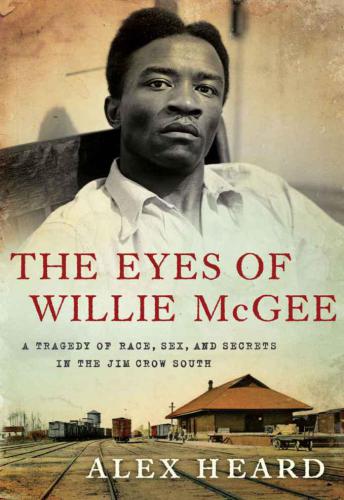
The Eyes of Willie McGee
A Tragedy of Race, Sex, and Secrets in the Jim Crow South
کتاب های مرتبط
- اطلاعات
- نقد و بررسی
- دیدگاه کاربران
نقد و بررسی

March 29, 2010
An iconic criminal case—a black man sentenced to death for raping a white woman in Mississippi in 1945—exposes the roiling tensions of the early civil rights era in this provocative study. McGee's prosecution garnered international protests—he was championed by the Communist Party and defended by a young lawyer named Bella Abzug (later a New York City congresswoman and cofounder of the National Women's Political Caucus), while luminaries from William Faulkner to Albert Einstein spoke out for him—but journalist Heard (Apocalypse Pretty Soon
) finds the saga rife with enigmas. The case against McGee, hinging on a possibly coerced confession, was weak and the legal proceedings marred by racial bias and intimidation. (During one of his trials, his lawyers fled for their lives without delivering summations.) But Heard contends that McGee's story—that he and the victim, Willette Hawkins, were having an affair—is equally shaky. The author's extensive research delves into the documentation of the case, the public debate surrounding it, and the recollections of McGee and Hawkins's family members. Heard finds no easy answers, but his nuanced, evocative portrait of the passions enveloping McGee's case is plenty revealing. Photos.

March 15, 2010
A thorough revisiting of the 1945 Mississippi black-white rape case that ended in the electric chair.
Determining that there were too many holes in the case against Willie McGee—despite three trials, appeals and public outcry—Outside editorial director Heard (Apocalypse Pretty Soon: Travels in End-Time America, 1999), born in Jackson, Miss., decided to start his investigation from scratch, along the way consulting primary sources, trial transcripts, FBI documents and archived papers. McGee, a black grocery-delivery driver in Laurel, was accused of raping a white married woman and mother of three, Willette Hawkins, after breaking into her home at dawn on Nov. 2, 1945. By Mississippi law, the death penalty could be applied for rape, though only African-Americans had suffered that punishment. Heard wades through reams of obfuscation around the case—much of it concocted by desperate supporters associated with the Civil Rights Congress and McGee's lawyers, including the young Bella Abzug—alleging that McGee and Hawkins were actually having an illicit affair, that Hawkins might have been pregnant by McGee and that blackmail was involved. To reach a sense of the facts, the author tracked down several of the children of both McGee and Hawkins and exposed some convincing angles, such as that Hawkins was traumatized by the rape, and that McGee's real wife had been abandoned, while the woman presented to the public as his wife was someone he had only met in jail and corresponded with. Heard does a fine job presenting horrific documentation of the practice of lynching in the South—McGee initially confessed out of terror for his life—and of the general culture of racism perpetrated by Sen. Theodore G. Bilbo and others.
Due to the suspicion of Communist intentions at the time, the widely accepted defamation of Hawkins's character and the outrageous injustice against blacks systematically practiced in the South, there is no way to discover"what really happened." However, the author undertakes painstaking detective work to engagingly explore an era of deep-seated racial hatred.
(COPYRIGHT (2010) KIRKUS REVIEWS/NIELSEN BUSINESS MEDIA, INC. ALL RIGHTS RESERVED.)

























دیدگاه کاربران